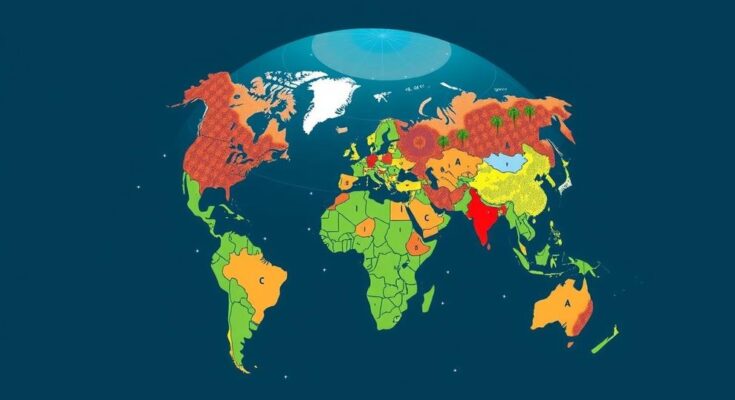At COP29, developed nations pledged $300 billion annually for climate change initiatives, increasing to $1.3 trillion by 2035. This pledge has faced significant criticism from developing nations for being insufficient in tackling urgent climate challenges. U.N. officials highlighted the necessity for greater ambition and commitment from wealthier countries as global temperatures continue to rise, signaling an urgent need for effective climate action.
At the recent U.N. Climate Change Conference (COP29) held in Baku, developed nations announced a commitment to provide $300 billion annually to combat climate change, with intentions to increase this amount to $1.3 trillion by 2035. Nevertheless, this commitment does not satisfy the demands of developing nations, who voiced their concerns regarding the adequacy of the funds in addressing the intensifying climate crisis. U.N. Secretary-General Antonio Guterres acknowledged the agreement but emphasized its insufficient ambition, stating, “The $300 billion annual funding falls short of addressing the immense challenge we face.” Similarly, UNFCCC Executive Secretary Simon Stiell urged for enhanced efforts, asserting, “There’s still much work to do. We must double our efforts before next year.”
Developing nations expressed their disappointment with the agreement. India’s COP29 representative, Chandni Raina, condemned the deal as “an optical illusion” stating that it does not tackle the magnitude of the challenges being faced. Tensions were echoed by Tina Stege from the Marshall Islands, who described the financial support as inadequate, leaving vulnerable nations with minimal resources. This sentiment of frustration was reflected by delegates from African nations, including a representative from Sierra Leone who criticized developed countries for their perceived lack of goodwill.
This latest pledge underscores persistent divergences between developed and developing nations concerning climate financing. Those in vulnerable regions argue that they are disproportionately impacted by climate change, while wealthier nations fail to provide adequate assistance. The context further emphasizes the urgency of the matter, as the EU’s climate observation platform, Copernicus, confirmed that 2024 is poised to be the hottest year on record, with average global temperatures indicating a significant increase above historical norms.
As preparations for COP30 commence, there will be increasing pressure on developed nations to fulfill their financial commitments and adopt a more equitable approach to climate financing. Calls from developing countries for larger contributions from major emitters, including the U.S., Canada, China, and Gulf states, are expected to deepen as the consequences of climate change become more severe.
The announcement made at COP29 regarding climate financing highlights a pivotal moment in the ongoing dialogue between developed and developing nations concerning climate change. Developed nations have pledged a substantial funding increase to tackle climate-related issues; however, there remains skepticism about its efficacy and sufficiency in meeting the urgent needs of nations that are most vulnerable to climate impacts. The importance of these commitments is amplified by the alarming data indicating rising global temperatures and the impending threat posed by climate change.
In conclusion, while the $300 billion annual commitment by developed nations represents a significant financial pledge, it has been met with backlash from developing countries who assert that it is inadequate for addressing the critical challenges presented by climate change. Ongoing pressures and calls for larger contributions to climate financing will likely intensify as the effects of climate change become increasingly pronounced. The upcoming COP30 will be a crucial juncture for dialogue and action on these pressing issues.
Original Source: www.turkiyetoday.com




